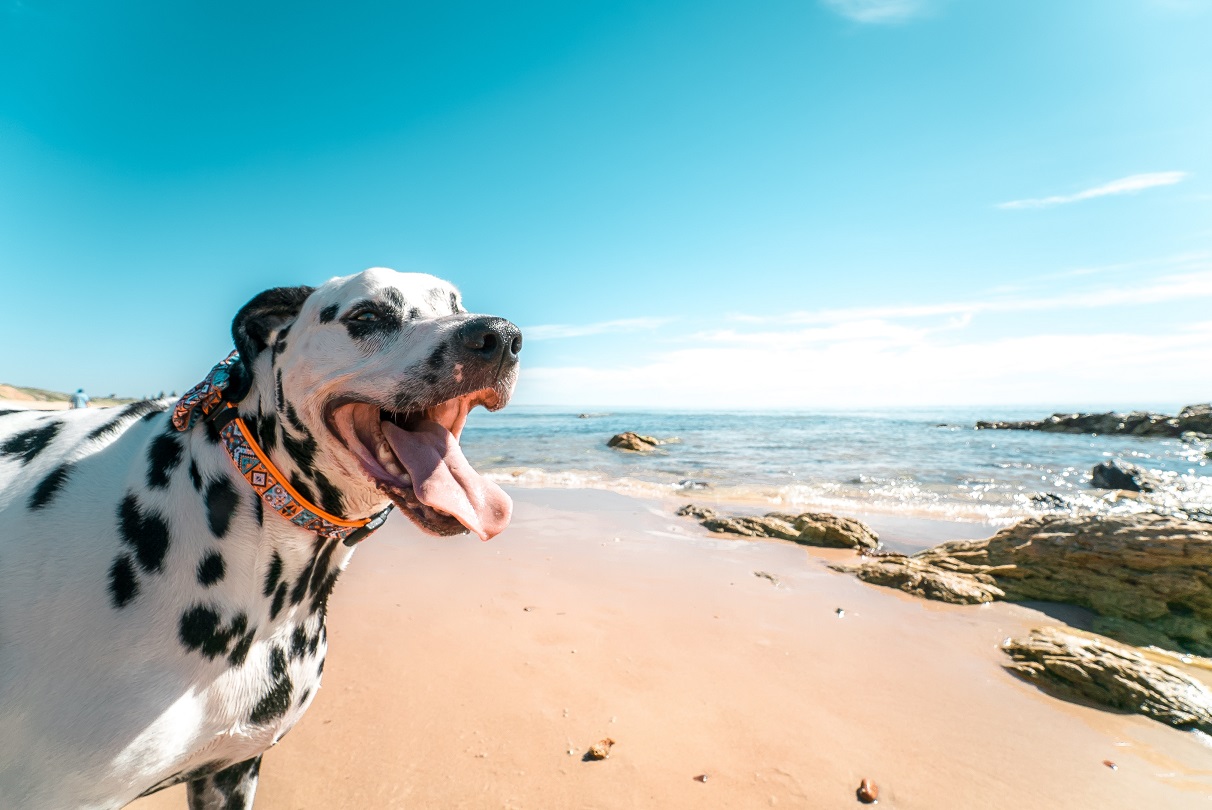Date:
With warm weather upon us, your pet will likely be happy to venture outdoors to enjoy the summer air instead of curling up inside. However, along with sunshine and fun, summertime may also bring some dangerous predicaments for your pet. The emergency and critical care services at Charleston Veterinary Referral Center (CVRC) are available to help every pet owner in case tragedy strikes. The five most common summer emergencies that occur in the Charleston area are dog bites and fights, car accidents, snake bites, heat stroke, and salt water poisoning.
Dog bites and fights
Charleston has many parks and areas that are great for social visits with our four-legged family members. When bringing your pet into a social situation, it’s important to do so safely. Each week during the summer months, the CVRC emergency team treats a number of bite wounds or dog fight-related injuries.
Monitor closely for behaviors in your pet and others that may result in conflict. If conflict does occur and there is a bite wound or other injury sustained, seek veterinary care immediately. These injuries are painful and can be sources of infection and inflammation that need to be addressed soon after the injury occurs. Many of these injuries can be treated on an outpatient basis, and some may require surgery to clean and close the wound, bandages, antibiotics, and pain medications.
Car accidents
With your pet spending more time outdoors during the summer, there are more opportunities for her to run off on what may seem like an adventure, as she explores new, unfamiliar areas. Unfortunately, she may ignore oncoming vehicles. During the summer, CVRC’s emergency room sees an average of three to five pets per week who have been hit by a car. Even more pets are involved in car accidents on holiday weekends when people and their pets are active outdoors.
Pets hit by a car suffer blunt trauma that can cause a variety of injuries, including:
- Broken bones
-
Extensive abrasions and skin loss
-
Internal injuries and blood loss
-
Organ damage
-
Head trauma and brain swelling
Take the following measures to ensure you do not lose control of your pet and avoid the likelihood she will be hit by a car during summer activities:
-
Ensure your pet is safely confined in your yard, with fences intact and gates closed.
-
Keep your pet indoors in a quiet room where she has no opportunity to slip out of an open door or gate when you are busy hosting guests.
-
Keep your furry friend on a leash at all times while enjoying outdoor activities, such as hiking or camping.
Snake bites
From May through October, CVRC’s emergency team sees a number of pets per week with snake bite injuries. South Carolina is home to six poisonous snake species:
-
Copperhead
-
Coral snake
-
Cottonmouth
-
Eastern diamondback rattlesnake
-
Pigmy rattlesnake
-
Timber rattlesnake
Snakes like to hide in brush, fallen timber, and pine straw, and commonly bite pets on the face, neck, or front limbs as they sniff through wooded areas. Signs your pet has been bitten by a snake include:
-
Puncture marks on the skin
-
Bruising
-
Swelling
-
Weakness
-
Dizziness
-
Nausea
-
Muscle tremors
-
Rapid breathing
If a snake bites your pet, seek emergency veterinary care immediately. Even a bite wound from a non-venomous snake can become infected and must be treated quickly. A pet with a snake bite will be evaluated with blood testing, ECG, blood pressure readings, and additional tests as needed. Most pets will be hospitalized for 12 to 48 hours for treatment with intravenous fluids, pain medications, and possibly anti-venom. With prompt treatment, most pets bitten by a snake make a full recovery.
Heat stroke
Heat stroke is a common summer danger, and the CVRC team sees pets suffering heat-related injuries each week during the spring and summer. Dogs and cats have few sweat glands, and their body temperature can quickly rise to a dangerous level if they are left in the heat with no way to cool off. A pet with heat stroke requires prompt treatment, so you must be able to recognize the following heat stroke signs:
-
Body temperature above 103°F
-
Excessive panting
-
Dry or sticky tongue or gums
-
Dark or bright red tongue or gums
-
Staggering or stumbling when trying to walk
-
Seizures
-
Unresponsiveness
If you suspect your pet has heat stroke, seek veterinary care immediately, as time is of the essence when treating this dangerous condition. You can help your pet cool down by offering her ice cubes to lick and placing wet cloths on her feet and around her head. Never put your pet in cold water or cool her below 103°F, which can cause hypothermia and dangerous blood pressure changes.
To prevent heat stroke, take the following precautions:
-
Don’t leave your pet outdoors unsupervised for longer than 10 minutes on hot days.
-
Ensure your pet has shade where she can get out of the direct sun.
-
Provide plenty of cool water while outdoors.
-
Monitor your pet for heat stroke signs and take her indoors immediately if she shows any signs.
Salt water poisoning
Your pet may love the beach or boat rides, but if she drinks salt water, your day in the sun may end in disaster. Salt water contains sodium chloride, which can cause severe dehydration, kidney damage, brain swelling, seizures, and death. As little as two to three cups of salt water can be toxic for a large dog, and less than a gallon can cause death. Toxicity signs can appear from 30 minutes to several hours after ingestion, and may include:
-
Vomiting
-
Diarrhea
-
Lack of coordination
-
Disorientation
-
Seizures
-
Unresponsiveness
If you think your pet may have consumed salt water, seek veterinary care immediately, since toxicity can be deadly.
Pets typically drink salt water if they are thirsty and fresh water is unavailable, so take plenty of cool, fresh water and a portable bowl to the beach. Encourage your pet to drink water every 15 minutes so she does not become dehydrated and thirsty. Watch her closely to ensure she doesn’t lap up any salt water while she is playing near the water.
Contact our hospital immediately at 843-614-8387 if you think your pet has been involved in any of these common summer emergency situations. Our experienced emergency veterinary team is always ready to help.








